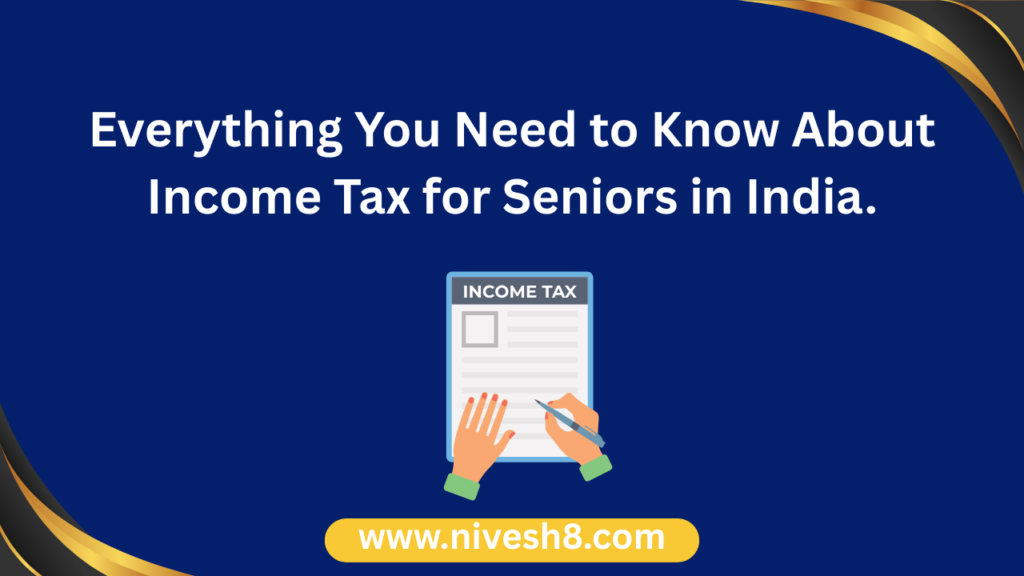Retirement should be a time to unwind following years of diligence. Still, some tax laws apply even in retirement. So that senior citizens can legally save money and plan better, understanding income tax for seniors is essential. Let us briefly consider how this operates in India.
Considered a senior citizen is who?
Regarding income tax laws, age counts. The government follows this definition of senior citizens:
- Elder Citizen: Everyone 60 years of age or above but below 80 years
- Super Senior Citizen: Any eighty years of age or above
Regarding income tax, both of these groups benefit especially.
Senior Citizens’ Income Tax Slabs: 60 to 80 years
Under the previous system, the tax slabs for people aged 60 to 80 for the financial year 2024-25 are:
- Income between ₹3,00,000 and no taxes
- ₹3,00,001 to ₹5,00,000 – 5%
- ₹5,00,001 to ₹10,00,000 – 20%
- Above ₹10,00,000 – 30%
This exceeds the ₹2.5 lakh basic exemption granted to persons less than 60.
Income Tax Slabs for Eighty-plus Year Super Senior Citizens
The slabs are even more laid back for people eighty years of age and above:
- Income less than ₹5,00,000; no tax
- ₹5,00,001 to ₹10,00,000 – 20%
- Above ₹10,00,000 – thirty percent
Super senior citizens therefore pay no tax unless their income exceeds ₹5 lakhs.
New Tax System against Old Tax System
The government also allows one to decide between two tax systems:
- Older Regime: more taxes but exempt under 80C, 80D, etc.
- New Regime: Cut taxes but grant less exemptions
Because the old system allows more deductions, most seniors still favor it.
Tax Exemptions for Senior Citizens
Income tax for seniors has several advantages, including:
- Not an Advance Tax: Seniors exempt from paying advance taxes in cases of no business income
- Higher Interest Deduction: Section 80TTB allows up to ₹50,000 tax-free interest on savings.
- Health Insurance Deduction: Section 80D allows up to ₹50,000
- Standard deduction: fifty thousand from pension income
- Section 80C: Up to ₹1.5 lakhs deduction for PPF, LIC, etc. investments.
Key Advice for Senior Taxpayers
- Even if your income is not taxable, file your ITR on time; it facilitates record keeping and refunds.
- If your income is less the taxable limit, use Form 15H to prevent TDS.
- Record pension, interesting income, and any rental income.
- Using senior citizen saving schemes (SCSS), FD, or PPF, plan your investments to lower taxes.
Typical Revenue Sources for Seniors
When figuring income tax for seniors, the following are typically taken into account:
- Pension either from an employer’s EPS or another
- Interest on post office schemes and bank FDs
- Rent a piece of real estate.
- Share dividend distribution
- Capital acquired through asset sales
Every one of these is taxed differently, thus, if unsure, it is advisable to consult a tax professional.
Last Thoughts
Many believe that retiring releases all tax concerns. Actually, though, knowing the rules regarding income tax for seniors helps you save more and stay out of legal hotbeds. The government offers particular advantages to assist seniors, but you must be aware of them and seize them.
Review income and tax plans a little annually if you are above 60 or helping someone else who is. This is a little step towards mental peace.



